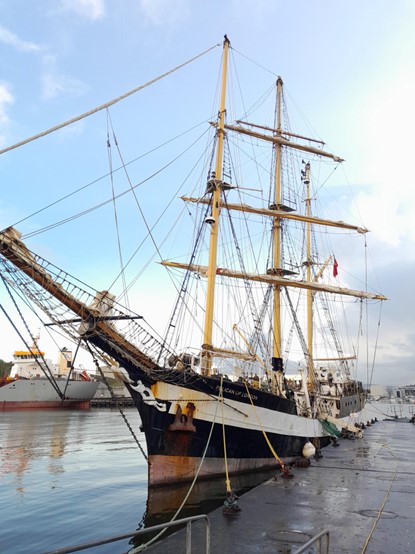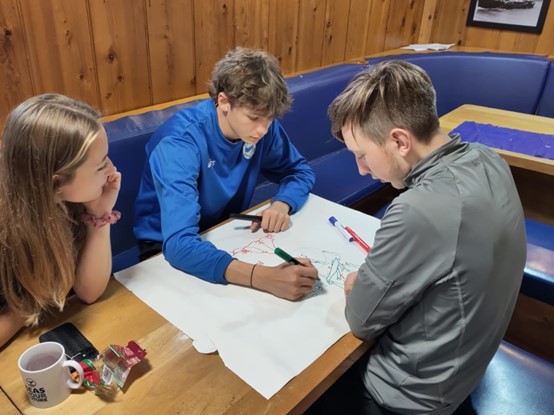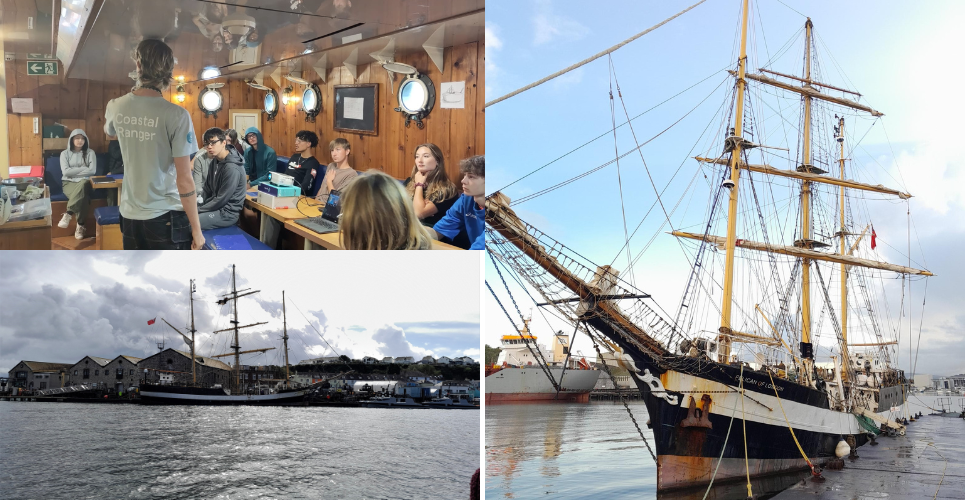Originally an arctic fishing vessel, the Pelican of London is now a sail training vessel owned by youth development charity Seas your Future (SYF) writes Plymouth Sound National Marine Park Ranger Nick Helm.
SYF run many sailing voyages using the Pelican, using the vessel as an opportunity to encourage people’s connection to the sea, further career progression and teach crucial life skills.
Sail training can also improve mental health, resilience and self-confidence. With many of the spaces on board being kindly sponsored, SYF shares our view of making the sea accessible for all to enjoy.

During one of their 10-day sailing voyages across the South Devon coast from Plymouth to Falmouth and back again, Plymouth Sound National Marine Park (PSNMP) Ranger, Nick, was invited aboard the Pelican on it’s eighth day at sea, to teach the crew about Plymouth Sound, the UK’s first National Marine Park. On this sailing voyage, the students were Plymouth residents, and had never heard of PSNMP before.
First things first, we had to remedy this, so Nick spent the first session filling everyone in on what PSNMP is trying to do, covering topics around nature connectedness, theories of change, habitat restoration and accessibility to the water. The nature boost projects especially triggered lots of questions and discussion from staff and students alike.

We then tried out an exercise around ecology, encouraging the students to see the living world with a different perspective, questioning why nature is shaped into the way it is. In this game the students were given examples of the astonishing adaptions present in local marine life, then asked to produce marine creatures of their own. The students must then convince the rest of the class through a presentation where their animal lives, what it eats and how it breeds. Then convince the class that the creature they had created would fit with the story. Points were given for creativity, believability and originality; the overall winner was chosen by the Head of Science on board – Dr Charly Braungardt.
It was inspiring to see some of the originality and creativity in some of the presentations, a real mix of ecologies, life cycles and adaptions were made by the students. From animals that live on the back of turtles and eat only marine plastic, to animals who fly into the air, exploding to spread it’s offspring across the world, many of the students achieved the criteria perfectly. Others were slightly more predictable, for it seems with groups of teenage boys, there will always be at least one project based solely on the male human anatomy!

We finished the two days on board by giving tours on the vessels RIBs across the Sound, learning about their own cultural heritage, with talks on nature, shipwrecks, history and current projects around the Sound. We took them from Hooe Lake, along the waterfront to Drakes Island, then over to Cornwall to see Mount Edgcumbe Garden Battery, up the Tamar past the naval dockyard, back through the dragons teeth to see the Jennycliff seagrass beds and then back on to the Pelican, based in Turnchapel.
It was a real pleasure to be involved in such an important project, and be part of the development of these young people. Alternative opportunities like this can offer a memorable positive experience and a safe space to grow as a person. We at PSNMP hope that everyone can get the opportunity to connect with our oceans and encourage marine citizenship in a way that is as influential as this voyage. Thank you to Seas Your Future for having us on board, if you would like to see for yourself the amazing work that goes on aboard the pelican, check out their website here: SEAS YOUR FUTURE – The Tall Ship Pelican of London


